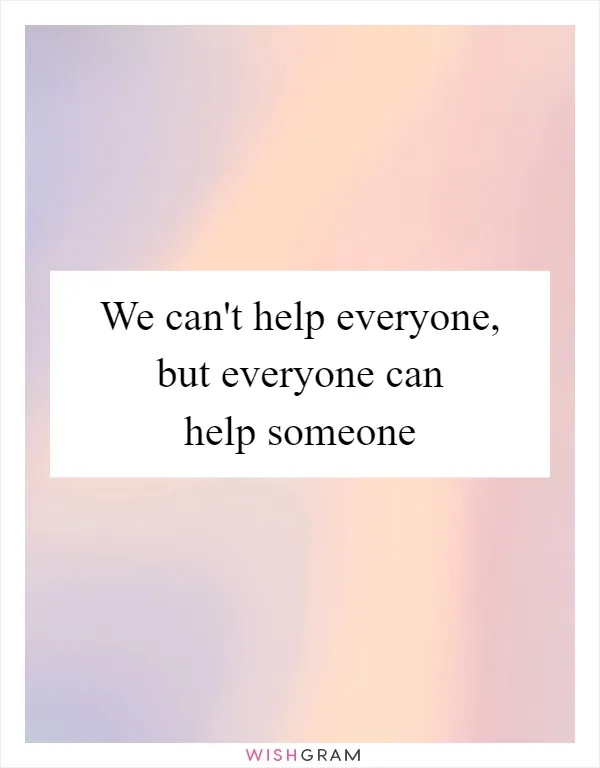We can't help everyone, but everyone can help someone
In life, it's often said that we can't help everyone, but everyone can help someone. This simple yet profound statement reminds us that even though we may not have the power to solve all the world's problems, we can still make a positive impact on someone's life. It highlights the importance of individual actions and the ripple effect they can create.
Helping someone doesn't always require grand gestures or immense resources. It can be as simple as lending a listening ear to a friend in need, offering a kind word to a stranger, or volunteering your time for a cause you believe in. Each act of kindness, no matter how small, has the potential to make a difference in someone's life.
Sometimes, we may feel overwhelmed by the magnitude of the challenges faced by our society. Poverty, inequality, and various forms of injustice can seem insurmountable. However, it's crucial to remember that change starts at an individual level. By focusing on helping one person at a time, we contribute to a collective effort that can gradually bring about larger-scale transformations.
Consider the story of a young girl who dreams of going to school but lacks the means to do so. While we may not be able to provide education for every child in need, we can help this one girl by supporting organizations that provide scholarships or by sponsoring her education directly. By doing so, we empower her to break the cycle of poverty and create a better future for herself and her community.
Similarly, we may come across individuals struggling with mental health issues. While we may not have the expertise to solve all their problems, we can offer our support and encourage them to seek professional help. Our empathy and understanding can make a significant difference in their journey towards healing and recovery.
It's important to recognize that helping someone doesn't always require financial contributions. We can also offer our time, skills, or knowledge to assist others. For instance, if you have expertise in a particular field, you can mentor someone who is just starting out. Sharing your experiences and guiding them through challenges can be immensely valuable and help them achieve their goals.
Moreover, acts of kindness have a way of inspiring others. When we help someone, we create a ripple effect that encourages them to pay it forward. They, in turn, may help someone else, creating a chain reaction of positivity and compassion. By starting with one act of kindness, we can set off a series of actions that have the potential to touch countless lives.
